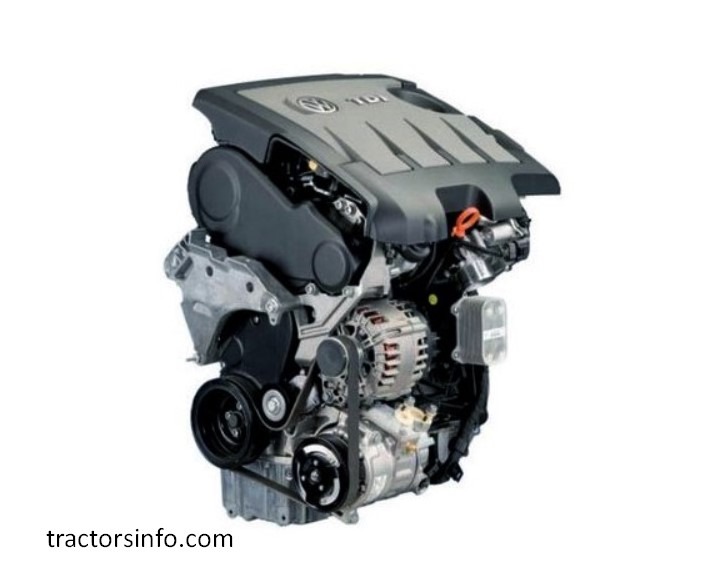VW/Audi 2.0 TDI PD EA188 Engine Specs, Problems & Reliability
VW/Audi 2.0 TDI PD EA188 Engine – Here in this post, I have taken all the details about VW/Audi 2.0 TDI PD EA188 Engine from the (official site) including VW/Audi 2.0 TDI PD EA188 Engine specs, Weight, Price & Dimension.
We believe to provide accurate details to our readers and we prefer only official sources for information about VW/Audi 2.0 TDI PD EA188 Engine.
All the details which you want to know about VW/Audi 2.0 TDI PD EA188 Engine you can find in this article which is updated.
VW/Audi 2.0 TDI PD EA188 Engine
This 2.0 TDI engine belongs to the EA188 family of engines. It is the newly developed 1.9-liter TDI engine.
Its 2.0-liter TDI was the first Volkswagen diesel engine to have four valves for each cylinder. It was later used in 2004, the Golf, Passat, and an additional vehicle.
The block of cylinders is constructed from gray iron. The greater capacity of an engine is made by increasing the bore to 81.0 millimeters.
The engine comes with balance shafts, forged steel crankshafts, and forged connecting rods that are fracture-split.
Its 2.0 TDI engine got entirely new 16-valve cylinder heads in aluminum with DOHC, which are double overhead camshafts (DOHC) controlled by a timing belt.
The most notable feature is how the timing belt does to drive intake and exhaust camshafts.
The engine comes with Pumpe Duse (PD) direct injection (DI) fuel system (not Common Rail) and turbocharger developed by Garrett.

VW/Audi 2.0 TDI PD EA188 Engine Specs
|
2.0 TDI PD | 2.0 TDI PD | 2.0 TDI PD | 2.0 TDI PD | |
| Injection | pump-nozzle | pump-nozzle | pump-nozzle | pump-nozzle | |
| Engine displacement | 1968 cm3 | 1968 cm3 | 1968 cm3 | 1968 cm3 | |
| Number cylinders / valves |
R4 / 8 | R4 / 16 | R4 / 8 | R4 / 16 | |
| Engine power hp / rev. in min. | 136 / 4000 | 136 / 4000 | 140 / 4000 | 140 / 4000 | |
| Max. torque / rev. in min. | 335 Nm / 1750 | 320 Nm / 1750 | 320 Nm / 1800-2500 | 320 Nm / 1750-2500 |
Specifications: 2.0 TDI engine – II generation
VW/Audi 2.0 TDI PD EA188 Engine Problems & Reliability
- The drive shaft for the oil pump was faulty. The oil pump stopped working, and the first thing that will be damaged is the turbocharger.
- The oil level is too high. A particulate filter is a cause. When the filter becomes blocked by soot, the fuel inside the engine does not thoroughly burn and is absorbed into the oil pan. This increases the level of oil.
Modifications
BMA, AZV – 136 HP (100kW) motor.
BKD, BKP, BRE – 140 hp (103kW) most popular engine.
BMN, BMR, BRD – the most powerful 170 horsepower (125kW) as well as 258 pounds of torque engine equipped with the diesel particle filter.
VW/Audi 2.0 TDI PD EA188 Engine
The VW/Audi 2.0 TDI EA188 is a turbocharged diesel engine produced by Volkswagen Group from 1997 to 2011. It was used in various car models such as Audi A3, A4, A6, Q5, and Volkswagen Golf, Passat, and Touran.
For Details, please check this YouTube video Here.
VW/Audi 2.0 TDI PD EA188 Engine FAQs
Is the 2.0 TDI a PD engine?
2.0 TDI PD engine is highly praised for its efficiency and low fuel consumption. It is used in a variety of well-known Vw Group models. The year 2007 saw Volkswagen decide to launch an updated solution with an upgraded Common Rail system.
What is a VW TDI PD engine?
A Pumpe Duse (PD) TDI engine was designed to replace the earlier, more powerful version that came with the 1.9 TDI. It’s the first four-cylinder, 16-valve double overhead camshaft (DOHC) Turbocharged Direct Injection (TDI) engine manufactured by Volkswagen Group.
Is Audi 2.0 TDI engine reliable?
The 2.0 engine indeed has a flaw across the VAG range. It’s so insecure that Volkswagen will replace your injectors at no cost, even if you’re in an older vehicle. The engine was only reliable in 2010 when they upgraded the engine’s technology. All 2.0 engines before that went down frequently and had problems with the turbo and the injectors.
Are PD engines good?
They’re cheap, reliable, and provide a decent number of horsepower. For many, they’d be regarded as excellent. The sole “PD” engine with an issue was the “PPD170,” not a genuine PD in a sense. The plethora of BXE engine failures in con rods prove the opposite.